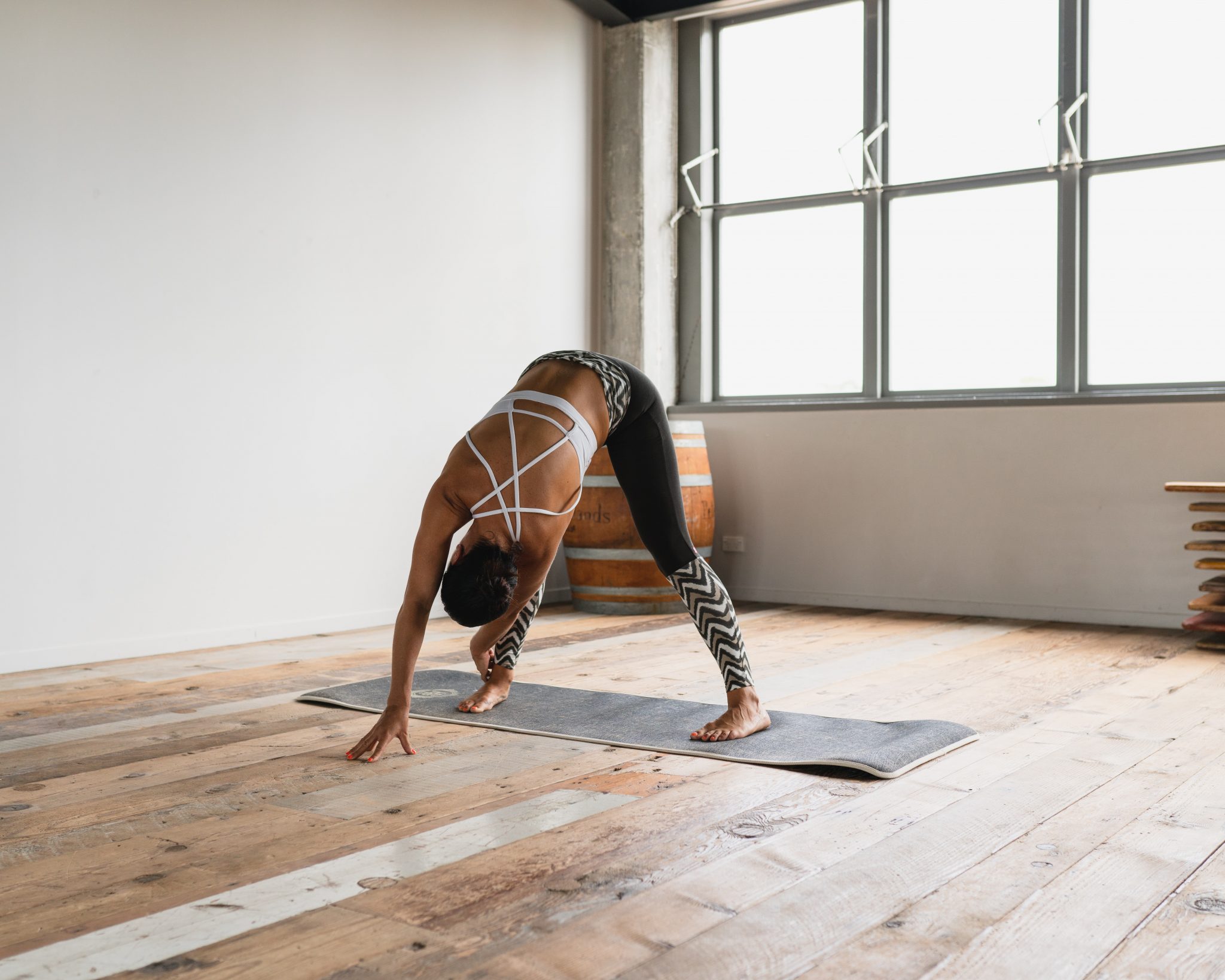For those who practice, yoga is far more than a physical workout. It’s attention to breathwork and moving slowly through different sequences is also supposed to be a great mind soother and mental health booster. But how much evidence is there to support the supposed mental health benefits of yoga?
Yoga, for those who practice regularly, is more than just a physical exercise. If you’re new to yoga, it might just seem like a series of stretches and postures designed to lengthen and strengthen the body – but many yogis also claim that the practice has a profound impact on mental wellbeing.
Those yogis are right: yoga really can improve your mental health, and you don’t have to be spiritual to reap the benefits. Studies show that it is one of the best lifestyle interventions to improve and prevent mental health issues, such as depression and anxiety. So, what mental health benefits does yoga provide, and how long do you have to practice yoga to start enjoying those benefits?
You may also like
11 tips to make yoga feel easier and more enjoyable
How does yoga benefit our mental health?
Like all physical activity, yoga gives our brains a dose of happiness because the movement releases endorphins. But, the link between exercise and mental health is more than just about this immediate boost: “Being active actually helps create a less inflammatory state in our bodies,” explains GP and member of the Strong Women Collective Dr Zoe Williams. “Inflammation is a biological stress, which is very linked to emotional stress, so by using physical activities to reduce the biological stress on our body we can alleviate from the sensation or the perception of emotional stress.”

Yes, exercise like weight lifting or running will help reduce stress levels in the body, but yoga does have an extra edge: a 2010 study published in The Journal Of Alternative And Complementary Medicine found that yoga can be “better than exercise at improving a variety of health-related outcome measures”, including cortisol levels and oxidative stress. “Furthermore, yoga appears to improve subjective measures of fatigue, pain, and sleep in healthy and ill populations,” according to the study.
The reason for this could be because of the added meditative element of the practice compared to other forms of activity. “Through the practice we connect with our breath, which is an incredible tool for supporting us physically, emotionally and energetically,” says yoga teacher Annie Clark. “We can work to release tension and trauma from the body, as well as develop a deeper connection to our intuition and understand ourselves more fully.”
You may also like
Anxiety: try this breathing exercise when you feel stressed
The science supports this too: “Breathing exercises have been shown using MRI scanners to bring us into a relaxed state,” says Dr Williams. “It can push our bodies from being in a fight or flight mode, which is when your sympathetic nervous system is firing, into a more restful, calm state, with your parasympathetic nervous system firing,” she says.
“By bringing the physical and psychological parts of our well being together, it creates almost a cocktail of wellness.”
How long does it take to see the mental health improvements from yoga?
Unlike other mental health interventions, such as medication or a change in diet, which can often take a while to adjust to, the shift in our nervous system during yoga means the practice can have an instant impact on our mental health. “There are so many different types of yoga, but if people are doing yin yoga or something that really focuses on breath and engaging with the body and being mindful then you could have benefits within seconds of starting the practice,” says Dr Williams.

However, as with everything, it is consistency that can have the biggest impact on our mental health. “The more we practice and the more we come to the art of yoga, the more the benefit just grows and grows and grows,” agrees Dr Williams.
Is yoga good for everyone?
It is crucial to remember that there is no o’ne size fits all’ when it comes to mental health. The real benefit of yoga is that it taps into multiple lifestyle changes at once: reducing stress, improving sleep, being a form of exercise and bringing you together with other people.
“When it comes to what lifestyle change is going to be best for an individual, it largely depends on two things. Firstly, where there’s most room for improvement, so whether they’re very stressed, have a poor diet, have poor sleep or whether they’re inactive. For example, if someone has a very poor diet, no amount of yoga is going to make up for that.
“Secondly it depends on what their individual passions are and what they enjoy because if we don’t get joy, pleasure and enjoyment out of something, then we’re not going to persist with it and we’re unlikely to get as much benefit,” explains Dr Williams.
Annie encourages everyone to try different variations of yoga to find one that works for them: “I’m a firm believer in taking time to explore what feels the most supportive for you. And as well as exploring different styles, it’s worth trying different teachers too to find someone that you connect with.”
If you want to have a go at exploring yoga, then tune in to the Strong Women Instagram this Sunday (21 June) as we celebrate the 21st International Yoga Day with live yoga classes.
Follow @StrongWomenUK on Instagram for the latest workouts, delicious recipes and motivation from your favourite fitness experts.
Source: Read Full Article
